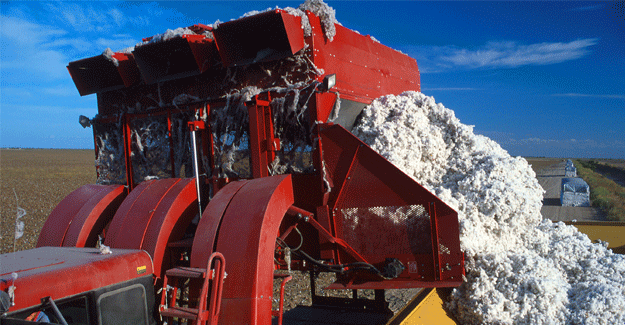
Pak Govt. Waives Cotton Import From India With Stiff Regulations
In wake of Pakistan’s growing textile sector’s demand for more cotton at affordable prices, their government has permitted import of cotton from India albeit with a rider. The Pakistan government has put in place some tough regulations for its industry players to import cotton from India.
The government nod is likely to be underway in a short while for importing cotton from India through the land route. Though the nod is on the cards, there are no signs of easing of restrictions that have been imposed on trade. Interestingly, Pakistan is the fourth largest global cotton producing country. However, as of now it faces a demand-supply gap of 4 million bales per year. The local demand stands at around 16 million bales per year.
According to official reports, “It will be mandatory for the textile industry players to secure a permit from the Department of Plant Protection of Pakistan’s food ministry.” The issue of the permit will be in accordance with the new phytosanitary conditions, for import of unprocessed cotton, including raw or seed cotton, cotton lint, linters, cotton waste and cotton stuffing from India.
For issue of permits, the National Plant Protection Organization is required to inspect and test the consignments by using appropriate procedures. This is to ensure that the imported cotton is free from biosecurity pests. In a recent letter issued, the Department stated, “The goods must be clean and free of contaminant seed, soil and plant debris and other bio-security risk material prior to arrival in Pakistan.”
It may be recalled that in wake of the objection raised Department of Plant Protection in the previous year, the Pakistani government suspended import of cotton from India. The imports were in the scale of 0.5 to 2.8 million bales per year.
Traders expressed the sentiment that restoration of permit to import from India will not completely ease the situation as the conditions set by the department were too stringent to be applied practically. The blame partly lies with the flawed cotton ginning process followed in India. The Pakistani observers said that the consignments imported from India contained cotton seeds also to some extent. The source pointed out that the presence of seed is a major problem because the seeds might carry eggs of various insects and pests that might spawn diseases.
Despite these constraints, the Pakistani traders expressed the view that Indian cotton was of good quality. “Besides, the prices are affordable and delivery time is short due to proximity,” they pointed out. Currently, the Pakistan government has indicated that the phytosanitary constraints might be reconsidered sometime in the future.
Textile Excellence
If you wish to Subscribe to Textile Excellence Print Edition, kindly fill in the below form and we shall get back to you with details.












